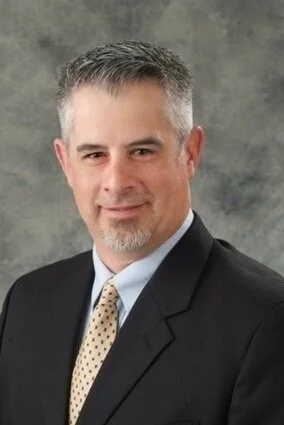How much does it cost to add a teenager to car insurance? Ben Galbreath Speaks with CarInsurance.com
Adding a teen to your car insurance policy can cause your rates to double, but there are ways to lessen the rate hike. Producer Ben Galbreath spoke with Insurance.com to explain what parents need to know about adding a teen driver to their auto insurance.
Adding a teen to your policy will increase your rates, on average, by 102%, according to CarInsurance.com rate data.
“Teenage drivers are inexperienced drivers who are less aware of their surroundings and have a tendency to drive too fast and less responsibly, which makes it more likely that they will have a claim,” Ben said.
To reduce premium costs, he recommended purchasing an older model vehicle for your teen to drive. “A sedan is usually best to lower your costs versus a sports car or SUV,” Ben advised. “I recommend covering the teen for liability only until they are about 20 years old, which is the age when coverage rates tend to come down.”
When deciding which household car the teen should be attached to, Ben commented: “Most insurance companies today are moving away from insurance rating based on the car, but for those that still do, the teen should be assigned to the car with the lowest value.”
Read the full CarInsurance.com article here.
Questions about purchasing a teen car insurance policy in Springfield or Urbana, Ohio? Contact Wallace & Turner at 937-324-8492 or info@wtins.com
Why Your Business May Need Commercial Auto Insurance Coverage
By Myles Trempe
Business owners often distort the lines between personal auto insurance and commercial auto insurance, but it’s important to understand that a standard personal auto insurance policy has limitations or exclusions relating to the business use of a personal auto. If a small business operates company cars, vans or trucks, there is a great likelihood they need commercial auto insurance.
Further, if a business is involved with any of the following functions (but not limited to), they most likely need commercial auto insurance:
• Transporting product or equipment including heavy machinery
• Hauling tools and equipment to job sites
• Regularly driving long distances to meet clients or visit job sites
• Delivering any goods for retail
• Trucking or freight transportation
• Transporting people (livery)
• Hiring your vehicle out to tow other vehicles
Protection Against Liability
Business owners need commercial auto insurance to protect against auto liability for bodily injury and property damage to a third party. In addition to liability, medical expenses for injuries sustained, physical damage of the owned or rented vehicle, and uninsured motorists’ coverage would apply to a business auto policy. Just like any insurance policy, the range of coverage can be broadened by purchasing options or endorsements. For example, a policy could be written to apply to one specifically described auto or to apply to the named insured’s liability exposures arising from any auto. Any auto could pertain to the vehicles owned by the business, hired or leased, and lastly all autos used for business including those not owned.
Protecting Your Business Financially
A business auto policy is critical for protecting the business financially—and is required by the law. Commercial auto insurance policies have coverage limits in terms of liability. Typical coverage limits available for a commercial auto policy are $500,000 and $1,000,000. Having higher limits for your commercial auto prevents a financially damaging event from putting your business at risk. A general liability policy for the business does not cover the costs of claims that arise from work-related auto accidents!
Types of Commercial Auto Coverage
Several types of coverage may be included in a commercial auto policy, others are options that can be purchased separately. Those options include: collision coverage for costs associated with an accident regardless of fault; comprehensive coverage for damages other than collision; non-owned auto coverage for when you or your employees drive rented or borrowed vehicles; substitute transportation when a scheduled vehicle is being repaired along with towing and labor costs.
Take for example the individual who owns a business on their homes premise—they make furniture. They only have a personal auto policy. The business owner is delivering a piece of furniture to a client and proceeds to run the red light and hit the other vehicle. The damages include: physical damage to the business truck, physical damage to the other vehicle, and medical payments for sustained injuries. The personal insurance carrier denies the claim on the basis that the owner was using his vehicle for business purposes. The resulting $100,000 in damages to a third party (not including damages to the business vehicle) will be the financial responsibility of the business.
Learn more about Commercial Auto Insurance
An insurance agent can determine the need for a small business to have commercial auto insurance. Contact Wallace & Turner Insurance to determine if a business auto policy is right for you.
Insurance.com Interviews P.J. Miller on Factors That Impact Auto Insurance Rates
P.J. Miller
In an interview with Insurance.com, independent insurance agent and partner P.J. Miller noted that auto insurance rates vary by state for many reasons.
"Typically, there are different legal mandates or requirements that are more liberal to the injured party, making it easier to receive a greater settlement [thereby raising costs for the insurance company]," Miller says. "Lower labor rates, lower parts prices for vehicles, lower sales tax rates, fewer vehicles on the road, and mandatory auto insurance are a few of the factors that tend to keep rates down."
One factor that might surprise drivers is their credit score. Nearly every state allows insurers to base their rates at least partially on a person’s credit history.
"Most carriers use credit as a portion of the rate-setting process, where permitted by law. While it is supposed to be a portion of the rate calculation, most believe it plays a significant role in determining price," Miller said. "There are countless other factors that enter into the behind-the-scenes formulation that make it almost impossible to know exactly why you pay, or are quoted, the final rate."
Sticking to the state minimum will limit your costs, but it will also increase your risk. Miller commented that states typically have an incredibly low minimum mandatory limit. “Keep in mind that $25,000 doesn’t go far in crashes.”
When you shop for car insurance, first determine what level of coverage suits your needs.
Depending on the age of your vehicle, you might not need comprehensive and collision coverage. Miller also advised the following:
Combine your coverage: Bundle auto coverage with your home or renters’ insurance policy: Showing your loyalty to one insurer could help you land a discount, especially if you have multiple policies. Renew your plan early and you could get a discount, as well.
Be a good driver: "Speeding tickets can dramatically impact your rates," Miller said. Being a safe driver can lower your car insurance by 5% typically. Driving fewer miles a year will also reduce your rate.
Read the full article at Insurance.com.
If you have questions regarding auto insurance, please contact Wallace & Turner at (937) 324-8492 or via our contact form.
Myles Trempe Quoted in FitSmallBusiness on Why Small Businesses Should Consider Commercial Auto Insurance
Running your own business increases your financial and reputational risk, so it’s important to protect yourself by insuring both your company and your employees. Some small business owners commit mistakes when taking out an insurance policy that creates problems later on. Producer Myles Trempe was interviewed by FitSmallBusiness on why small businesses should consider commercial auto insurance.
Myles commented, “If a small business operates company cars, vans, or trucks, there is a great likelihood they need commercial auto insurance. Business owners oftentimes distort the lines between personal auto insurance and commercial auto insurance. A standard personal auto insurance policy has limitations or exclusions relating to the business use of a personal auto. Therefore, small business owners need commercial auto insurance to protect against auto liability for bodily injury and property damage to a third party. A commercial auto policy is critical for protecting the business financially, and is required by the law. A general liability policy for the business does not cover the costs of claims that arise from work-related auto accidents.”
Read the full article, “Top 25 Small Business Insurance Mistakes to Avoid.”
If you have questions regarding commercial auto insurance, please contact Wallace & Turner at (937) 324-8492 or via our contact form.
Learn Factors That Can Affect Your Car Insurance Premium
Intern Dorian Hunter chats about car insurance and the different factors that can affect your premium, including prior accidents and driving violations.







